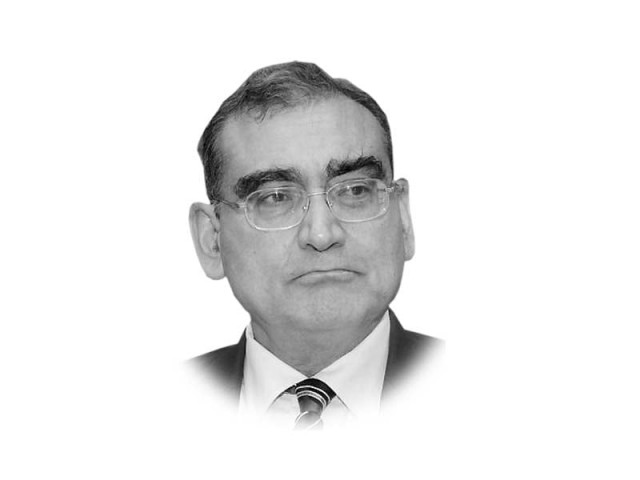Two options before the Supreme Court
The great error by Pakistan Supreme Court was in disqualifying, removing Gilani by contending he defamed judiciary.

1) It can continue on its path of confrontation with the political authorities. In that case, it must disqualify Prime Minister Raja Pervaiz Ashraf because logically, it cannot give him a treatment different from what it meted out to Yousaf Raza Gilani. Thereafter, it must disqualify the third prime minister who will be appointed after Prime Minister Ashraf, and so on and so forth, ad infinitum.
2) It must switch over to the path of judicial restraint, overrule its earlier decision disqualifying Mr Gilani and openly acknowledge its mistake. This it can do because the five-judge bench hearing the case can overrule the three-judge bench verdict of disqualifying Mr Gilani.
In all earnestness and as a well-wisher to members of my own erstwhile judicial fraternity, I would advise the Court to adopt the second path. The Court is now standing on the brink of a precipice from which it should step back immediately to avoid disaster. This is the last chance it has of not plunging downhill and taking the country down with it.
We are all human beings and we all commit mistakes. So do the Courts. Lord Alfred Denning has said that “the judge has not been born who has not committed a mistake”. There is nothing dishonourable in acknowledging one’s mistake. In fact, one grows in stature in accepting one’s mistake. The provision for review in most statutes and constitutions is precisely because it was realised that sometimes courts commit grievous errors and should have an opportunity to correct them.
The path of confrontation with political authorities is the surest path of wrecking the Constitution and will be disastrous for the country and democracy. Justice Felix Frankfurter repeatedly advised judges to avoid entering the ‘political thicket’, and the recent judgment of Chief Justice John Roberts of the US Supreme Court, in the Affordable Healthcare Act case, has basically followed the same wise approach.
There can be given any number of instances where courts have realised and accepted their mistakes. For example, after a period of confrontation with the government of President Franklin Roosevelt (when it was striking down the New Deal legislation), the US Supreme Court, in 1937, acknowledged its mistake and beginning from the decision in West Coast Hotel vs Parrish (1937) drastically reversed its stand and started upholding that legislation. Similarly, in Brown vs Board of Education (1954), the US Supreme Court reversed the racially obnoxious doctrine of ‘separate but equal’ laid down in Plessey vs Ferguson (1896). In Maneka Gandhi vs Union of India (1978) the Indian Supreme Court reversed its earlier decision, and also in AK Gopalan vs State of Madras (1950) in which it had taken a narrow view of the right to life and liberty given in Article 21 of the Constitution. Many more such examples can be given from judicial history.
The great error committed by the Pakistan Supreme Court was in disqualifying and removing Mr Gilani from the post of prime minister by contending that he had defamed the judiciary. In fact, Mr Gilani had only taken a stand based on the immunity given to the president under Section 248(2) of the Constitution. He had not abused the Court or attributed corrupt or improper motives to it. How is this defamation? If this is defamation and contempt of court then whenever any lawyer objects to the jurisdiction of a court, he can also be jailed for defamation and contempt of court.
The Court forgot that in a parliamentary form of government, the prime minister holds office as long he has the confidence of parliament, not the confidence of the Supreme Court. Section 63(1)(g) cannot be utilised by the Court to oust a prime minister who undoubtedly enjoyed parliament’s confidence. I am afraid that the Court has set up a dangerous precedent by which it can remove a prime minister enjoying the confidence of parliament just because it is inimical to him (or to create problems for the president). This would be fatal for a democracy. The sooner this dangerous precedent is reversed, the better.
Published in The Express Tribune, July 19th, 2012.















COMMENTS
Comments are moderated and generally will be posted if they are on-topic and not abusive.
For more information, please see our Comments FAQ